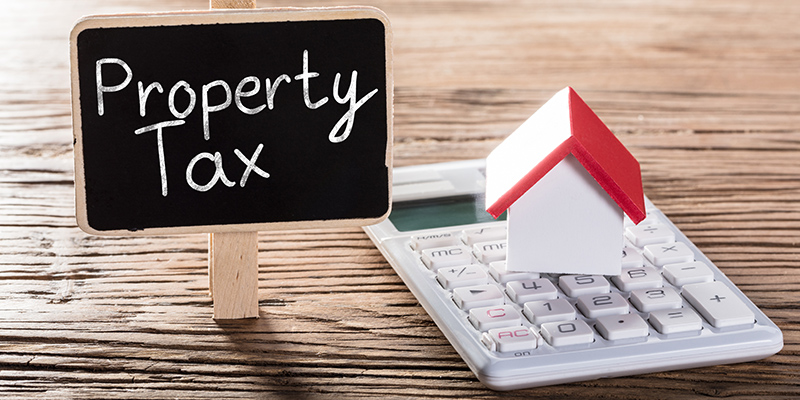


Before buying a home in Florida, it is important to familiarize yourself with the obligations that come with being a homeowner. One of those obligations is paying taxes. But, how much is Florida property tax anyway?
In Florida, homeowners do not have to pay property taxes to the state government. Instead, it is the local governments that collect property taxes, which serve as their main source of funding.
Before you purchase a home in Florida, whether as your primary residence or as an investment property, you must take a look at property taxes at the local level. Each county has a different rate. Moreover, the amount you will pay will depend on the value of the property.
Several counties have tax rates that are higher than the national average. It is worth noting that Florida offers certain tax exemptions that can significantly reduce your tax obligation. Property tax rates apply to the taxable value of your home, which already takes assessment limits and exemptions into account.
The Save Our Homes amendment limits the property taxes homeowners must pay to their local government. According to this law, assessment increases for property taxes are capped at 3% annually. However, this assessment limit only applies to owner-occupied homes.
If you plan to buy property in Florida, be prepared to pay the tax that comes along with it. Fortunately, there are some notable exemptions that may apply to you so you can lower your tax amount.
Homestead Exemptions apply to owner-occupied residences in Florida. If your Florida home is your primary residence, then you qualify for these exemptions. Homestead exemptions can exempt up to $50,000 of your property’s assessed value, though only the first $25,000 is exempted from all taxes. As for the other $25,000, it only receives exemptions from non-school property taxes.
Senior Citizen Exemptions apply to long-time, limited-income seniors. Only certain counties in Florida offer this exemption. Additionally, the requirements may be different depending on where you live. Generally, to qualify for this exemption, the senior must be aged 65 or older and have a gross income below a specified limit. But, the good news is, you can apply for this exemption on top of the Homestead Exemption.
If you build living quarters in your house for a family member who is 62 years old or older, you can choose to either exempt the added value of your home or deduct 20% from the total, whichever is less. The family member, however, must have continued to live in the constructed living quarters for you to qualify for this benefit.
Widows and widowers who have not remarried can exempt $500 of their assessed property value from taxation. But, you can’t claim this exemption if you were already divorced when your ex-spouse passed away.
There are a few Veterans Exemptions worth mentioning.
Homeowners who have a total and permanent disability can receive additional exemptions. Quadriplegics, for instance, are exempt from all property taxes if they use their property as a homestead. Additionally, those who are legally blind or use wheelchairs to move freely can be exempt from all property taxes, too, if they have a gross income below a specified amount.

Beyond knowing how much you will need to pay and what exemptions apply to you, you must also familiarize yourself with the actual process behind property tax assessments.
First comes property appraisal, which involves having a property appraiser place a value on your home. Each Florida county will have its own property appraiser, an elected official who appraises every lot in the county every year. You can search for yours here.
You will then receive an annual Truth in Millage (TRIM) notice. This notice tells you the appraised and assessed value of your home. If you feel that the appraised value of your home is too high, you have 25 days to file an appeal with the county adjustment board.
If you qualify for any tax exemptions, make sure to submit all applications and supporting documents to your county’s property appraiser. This way, you can make the most out of the state’s tax exemptions.
Additionally, you must know that Florida uses millage rates to compute property taxes. A millage rate is one-tenth of a percent, meaning $1 in taxes for every $1,000 in property value.
To determine your tax liability, use the Florida property tax calculator below:
Just Value – Assessment Limits = Assessed Value
Assessed Value – Exemptions = Taxable Value
Taxable Value * Millage Rate = Total Tax Liability
Then, all there is left to do is to pay Florida property tax.
Because local governments collect property taxes in Florida, the tax rate can differ from one place to another. On average, the Florida property tax rate sits at 0.83%, with homeowners paying an average of $2,035 in property taxes every year. This is comparatively lower than the national average of 1.07%.
Below is a list of Florida counties and their corresponding average effective property tax rates as of writing:

Florida remains a popular destination for vacationers from all over the world. As such, it makes sense to buy homes in the Sunshine State, whether for personal use or to use as a rental property. Buying a home is one of the largest investments you will ever make. Thus, you should understand what obligations come with it.
If you are concerned about tax liability, it pays to know a lot about the area you plan to buy property in. Florida property tax can be difficult to grasp since rates change from county to county.
Additionally, there are so many exemptions and assessment limits to take into account. A rental management company can help you calculate property taxes. Use our online directory today to help you find the best one in your area.
RELATED ARTICLES: